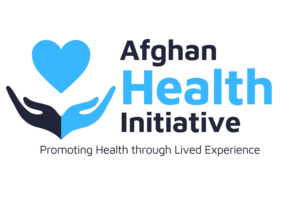Afghan Health Coalition

Grantee: Afghan Health Initiative
Timeframe: July 2023 – June 2026 | Amount: $520,000
- Year 1: July 2023 – June 2024. Amount: $145,000
- Year 2: July 2024 – June 2025. Amount: $175,000
- Year 3: July 2025 – June 2025. Amount: $200,000
The Afghan Health Coalition aims to address health disparities for Afghan immigrant and refugee women by embedding Community Health Navigators into clinical settings, providing culturally tailored systems navigation to ensure equitable prenatal care.
Since receiving PHPDA funding, AHI has worked to address maternal healthcare disparities among Afghan immigrant and refugee women. The needs assessment identified three major challenges: limited access to care, lack of cultural and linguistic representation, and difficulty navigating the medical system due to fear and unfamiliarity.
Many Afghan women delay or avoid care due to mistrust, discrimination, and language barriers. Negative experiences with providers further discourage engagement with the healthcare system. In response, the Afghan Health Coalition (AHC) has focused on community-led advocacy and culturally responsive solutions based on Afghan women’s lived experiences.
A key challenge has been navigating trauma-related and systemic barriers while ensuring strategies reflect the diverse needs of the community. Many women carry trauma from past healthcare experiences and struggle to trust providers. Additional hurdles—transportation, lack of interpreters, and provider cultural competency gaps—make access even more difficult. While some providers want to engage, many lack the training and resources to serve immigrant and refugee populations effectively.
To improve community engagement, AHC shifted from structured workshops to community-driven discussions, creating safer spaces for Afghan women to share their concerns. This process highlighted the need for culturally responsive support within clinical care settings. In response, AHC launched the Community Health Navigator (CHN) initiative, where trained navigators will bridge cultural and linguistic gaps, advocate for Afghan women, and improve access to care. This initiative aims to build trust, empower women in healthcare settings, and create a more inclusive, culturally responsive maternal health system
In Year 3, AHI will expand maternal healthcare for Afghan immigrant and refugee women, making it more culturally responsive, community-led, and trust-based. The CHN initiative will provide language support, cultural mediation, and connections to essential resources beyond medical care.
Educational workshops will be restructured to be community-led and trauma-informed, covering prenatal care, postpartum recovery, and emotional well-being in a supportive, culturally familiar environment. Strengthening strategic partnerships with healthcare providers and cultural leaders will help ensure medical professionals receive cultural competency training and that maternal care models become more inclusive.
AHI will track reductions in missed prenatal visits, increased provider trust, and improved healthcare engagement, using data and community feedback to refine its approach. Sustainability is a priority, with efforts to secure long-term funding and expand CHN services to create lasting systemic change in maternal healthcare for Afghan women.
ABOUT OUR GRANTEE
Afghan Health Initiative
AHI’s mission is to serve the Afghan immigrant and refugee population in Washington State by promoting community-based public health interventions which target social determinants of health thereby increasing equal access to health, education, and economic independence.